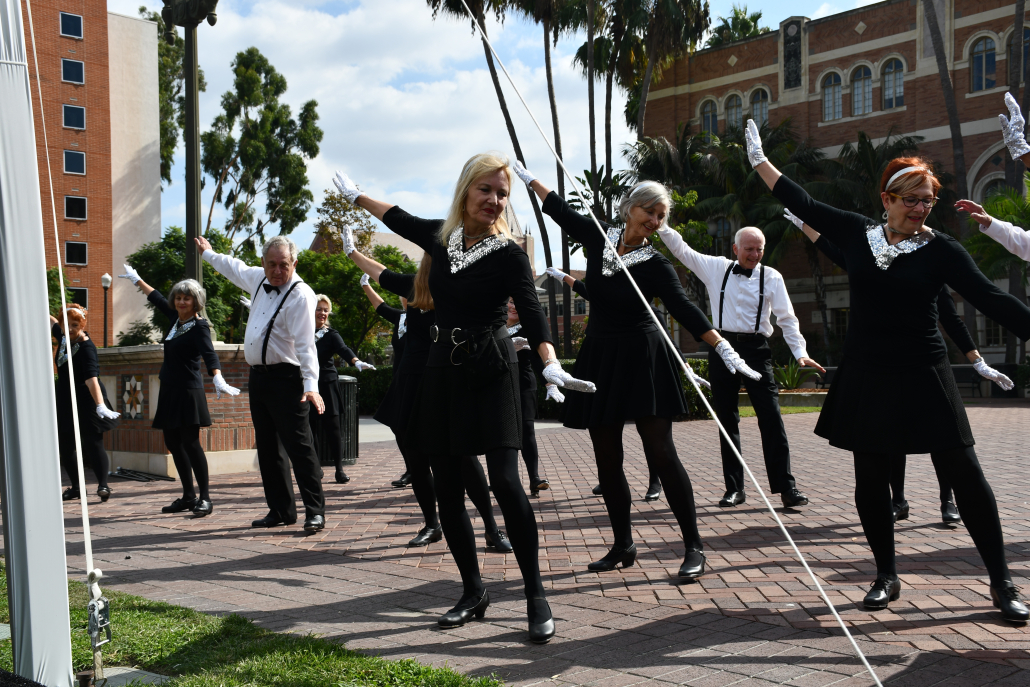Back in My Day: Parenting the parents

Watching a younger sibling, relative or friend grow up can be a fun experience as you vicariously age with them while reflecting back on your own personal experiences.
Throughout high school, I remember joining my friend to pick up her younger siblings from the grade school I had attended just a few years back. There’s a sense of nostalgia that comes over you, one that certainly may lean one way or another depending on your impression of the place.
For me, I loved grade school. It was an opportunity for me to basically go nuts for a few hours while also gaining positive reinforcement for good grades — an issue I still face today, but I digress.
My friend, on the other hand, wanted to get out of school as soon as the bell rang and had a particular fondness for the independence that came with the high school experience. Regardless, watching her two siblings rush over to us after being released by their teacher helped those particularly lifelike memories also rush back into my mind.
Now, they’re both in high school. I still often get the text to go pick them up, but soon enough, they started practicing for their permit exams and began grilling me for running yellow lights on our rides home.
I know, too, that my parents, who have about double the years on me, had those instances of vivid nostalgia and bittersweetness as I progressed through different parts of my life. From my first steps to my graduation from high school to my third time crying over that one ex, these experiences are things that our parents or guardians see as part of our aging process — our character arc (mine has not really changed personality-wise, to be honest, but might have declined looks-wise).
But watching my grandparents age, especially alongside my parents, illustrates a completely different story. I often contemplate what my life and their life will look like even a decade down the road. It can be an incredibly difficult and mentally-draining process. For some, maybe that decision comes easy because of generational wealth, siblings willing to care for parents, saved retirement or just a general sense of confidence. But, as part of a family that lacks all of those things, I can’t help but genuinely panic about how things will turn out. Often, I can’t even picture myself a few years down the road. Then again, I also fall asleep when I drink coffee so that might just be a personal issue.
It’s hard for my parents and myself to not ponder the “what-ifs.” What if I’m not financially stable? What if I feel overwhelmed or have too many responsibilities on my plate? What if I can’t find a place or housing space for them? What if they disagree with my decisions? They’re valid questions, but it’s hard to find those answers now.
And even more prominent than the “what-if” is the “when.” When will all of these things pop up? Unfortunately, nobody can predict when these things will happen. Many college students, and even high school students, must undertake the responsibilities of being a caretaker for their parents.
Like the differing experiences that my friend and I had gone through as grade schoolers, the way that we navigate generational aging will be individualized to each person. However, while no sense of time frame or certainty can be daunting alone, being prepared and knowing what to do when presented in such a scenario may hopefully give some ease.
Familial ties implore and often mandate us to care for older relatives or older adults in our lives. However, recognition alone should not be the only testament of the endless financial, physical and mental sacrifices endured by people who are figuring out their life. There should be more than just books or simple pamphlets dedicated to navigating such a long, tedious endeavor. Support from government outlets for older adults, such as Medicaid or Social Security, must consider how to improve financial support for younger people who choose to make that journey.
At the same time, perspectives on aging may differ from culture to culture. Obligations may be skewed or blurry when it comes to intergenerational care. Some may consider nursing homes or external living communities as the best way to go. Some may be financially stable enough to house older relatives in their own home. But, regardless of whatever route, we should not, and never opt into simply tossing individuals to the side for our own personal interests.
Some frankly, do not feel that need to care for older relatives — be it vengefulness or even unawareness. But it may lay upon our shoulders to change the course of care and compassion, to change a course of trauma and anger.
So, maybe I’ll pop up again here or there. But, for the meantime, when your kids might walk with you along Trousdale, asking you about what you were doing “Back in your day,” take time to be grateful for that opportunity, to be grateful for those around you.
Lois Angelo is a junior writing about the intersections of gerontology and social issues in his column, “Back in My Day.” He is also the managing editor at the Daily Trojan.

